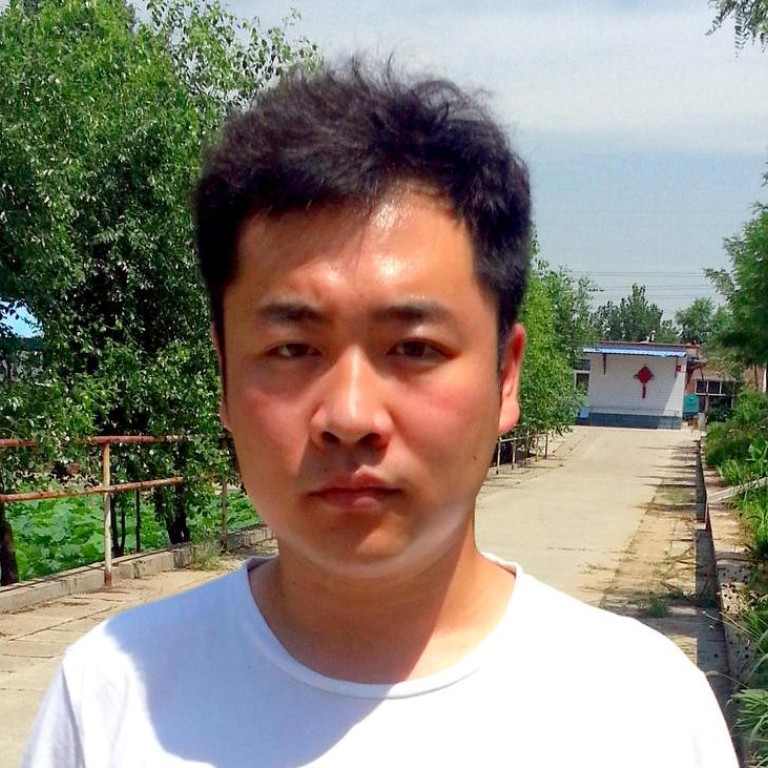
Playboy gives up lifestyle to run nursing home
Rapid ageing of China's society aggravates shortage of care facilities, and former playboy answers the call in money-losing enterprise

The two-hectare facility used be a holiday resort that my parents built for people to enjoy rural life. They decided to change it into a nursing home in 2005, because they thought it would be a quick way to earn money, as long as the rooms were rented out. It turned out that they were very wrong. When the business was struggling, my mother fell sick. She was diagnosed with cancer. My father said he had to take care of my mother full-time, and I could choose whether to close the business. Eager to prove myself a grown-up who could be counted on, I took the role without hesitation.
The change has been huge. My days are occupied with chores, including looking after the elderly, ensuring supplies of necessities and dealing with government departments. At night, I am prepared to be woken up by emergency calls when someone falls ill or dies. The old days are like a faraway dream when I was with friends and spent thousands of yuan on wine at nightclubs or indulged myself in various kinds of gambling: mahjong, poker - you name it, I'm good at it.
As the old people's home is in a village in Fangshan district in the outskirts of Beijing, there were no lamps along the road back in 2005 and 2006. When I returned downtown after spending months in the nursing home, I was thrilled just to see illuminated buildings.
I think that at some point in time, everyone has to take some responsibility and grow up. Running the nursing home is my way of showing my family I support them.
And I think that the old people need me. Most old people on the mainland need an affordable home.
Most of them are from ordinary or poor families. They are aged between 60 and 70, capable or incapable of taking care of themselves. Some are childless, others have children who can barely feed their own families.
We charge up to 1,800 yuan (HK$2,260) a month for everything: food and accommodation in a 20-to-30-square-metre room with household appliances. I think the pricing is affordable for most mainlanders. Some of the elderly come from neighbourhood villages, while others are from downtown areas or other provinces and hear about us from their friends or relatives.
It records a loss every month. There is always a gap of thousands of yuan between the income and expenditure. Expenses vary. Sometimes I have to replace a TV set. Sometimes I have to settle a dispute with family members after an elderly resident suffers a fracture while being massaged by a warm-hearted neighbour. A private nursing home like ours gets a monthly subsidy of 200 to 300 yuan per person and a small amount of tax deductions from the government. I don't think it will ever be a profitable business if there is no substantial financial support from the government.
To me, the bottom line is that I could sell the land, worth more than 30 million yuan now, to repay banks and friends and make a profit. But as long as the loss is still bearable, I will continue to run the home. Now there is an emotional bond between us. The elderly need me, and I need them.
I have no idea. I think the whole development strategy of China's nursing-home sector is problematic. Public nursing homes, the main recipients of China's favourable polices, deliver good services at relatively low prices, but they accommodate only privileged customers: retired civil servants or family members of senior officials. In the private sector, many high-end villas are built to attract rich people. The middle to low end of clients - the majority of China's elderly population - are largely ignored, as it is a lacklustre business.
Most elderly people on the mainland do not want to spend money on themselves. I used to suggest that the children of some old people we take in buy new shoes or clothes for their parents. The kind suggestion was usually met with objection by the elderly. The usual response was: "How long am I going to live? It's not worth wasting money on me." They prefer that their offspring lead better lives. This type of mindset means we cannot get the elderly to spend money liberally on almost anything.
I'm working with friends to produce our own brand of diapers for old people. And I also plan to make Pu Le Yuan brand wheelchairs. These are things they need. I think our reputation could help us win a place in the market for these products and ultimately bring us profits.
Also, I plan to set up a foundation for the elderly and use donations to improve their living standards. While modern families are generous in the time and money spent on their pet animals, in many cases, old people are not treated as well as these pets. These old people deserve a better life.

